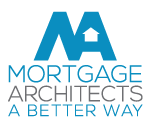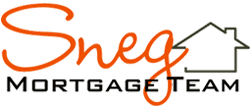Closed Mortgages
Most mortgages are “closed”, meaning that clients are locked-in with their lender for a specific term. You have a guaranteed interest mortgage rate for a specified period of time and an “agreement” with the lender to keep the mortgage for that period of time. If you should choose to pay out the mortgage early you will be subject to paying a penalty for breaking the contract. The mortgage document will allow provisions to avoid this penalty if you have the mortgage assumed by the new purchaser of your home or if you port the mortgage to your next home. Most closed mortgages have prepayment options attached to the mortgage that allow you to pay down the mortgage faster; clients may pay 10-20% of the mortgage principal off each year without penalty. Closed mortgages may have either a variable rate or a fixed rate. Closed mortgages are available in 6 months, increments of 1, 2, 3, 4, 5, 7, and 10 years, and at times 25-year terms.
Open Mortgages
Open mortgages are open to any prepayment at any time without penalty. The interest mortgage rates is guaranteed for a minimum of 6 months up to a 5-year term. Open mortgages will generally have a higher interest rate attached to them due to this added flexibility. Unless you plan to pay your mortgage off in that specified period of time, it is usually more cost-effective to sign up for a closed mortgage.
Fixed Rate Mortgages
A fixed interest rate means that you have a guaranteed interest rate for the term of the lender’s contract. The interest rate will not change during the term of the mortgage. Fixed rate products are best suited in times where the interest mortgage rates are not stable and there is a strong belief that the rates will increase in the future.
Variable Rate Mortgages
These mortgages fluctuate with the bank’s prime rate. With some lenders the change in prime may affect your monthly payment. Variable rate products are best suited during times where the interest mortgage rates are stable or declining. These products are usually less pricey than the fixed rate because of the risk embedded in it.
Taking a mortgage for a purchase
Buying a new home or an investment property is one of the biggest financial steps of your life. Getting the best rate and best product custom-made to suit your needs is as important as finding the right house. There is a big advantage in exploring your options, getting pre-approved, and securing your finance before you put an offer on the house.
Refinance
Due to a major increase in property values over the past few years, some homeowners are sitting on a significant amount of new equity, which is the difference between the current value of the property and the balance on the existing mortgages. Despite this equity, homeowners may be struggling with many loans or other financial commitments. The solution is to refinance: a commitment with a lower monthly payment!
Another good reason to refinance is to take equity out of your house for investment opportunities, or simply to lower your monthly payment.
Refinancing can be quick and easy, and it is the perfect means to getting your priorities back in check!
Secured Line of Credit
A secured line of credit is a type of line of credit, secured by your property, which allows you to use the equity in your home to borrow money. A secured line of credit provides you with a flexible alternative to the traditional mortgage, is usually priced at “prime”, and is open for payout at any time without penalty. With the secured line of credit, clients can access up to 90% of the price of their home, meaning a less-outstanding mortgage balance.
When using a combination of mortgage and a secured line of credit, each payment means that your available credit increases as your mortgage balance decreases.
This feature gives you more control and flexibility in achieving your objectives. You may use your available credit to renovate your house, invest, study, or start your own business.
Second Mortgage
A second mortgage is a mortgage registered against real estate property which already has one mortgage. The date and time of registration determines which is first and which is second.
Although the rate for a second mortgage is usually higher, a second mortgage is sometimes the best solution in cases of debt consolidation, challenged credit, or in other life challenges that may come your way. Clients who want to refinance typically use their home equity, or the difference between the current value of their property and the balance on their existing mortgages. However, in some cases it makes sense to keep the first mortgage and to take a second mortgage in order to keep the lowest rate or to avoid penalties of refinancing. Another reason to consider taking a second mortgage on top of a first is to avoid paying an insurance premium.
Bridge Financing
Bridge financing is a loan required to provide the funds needed for closing of a new property to the time of the later closing of the sold property. Bridge financing is usually taken for few days up to two months. In order to get a bridge financing the client will need to provide the bank with a solid selling agreement.

